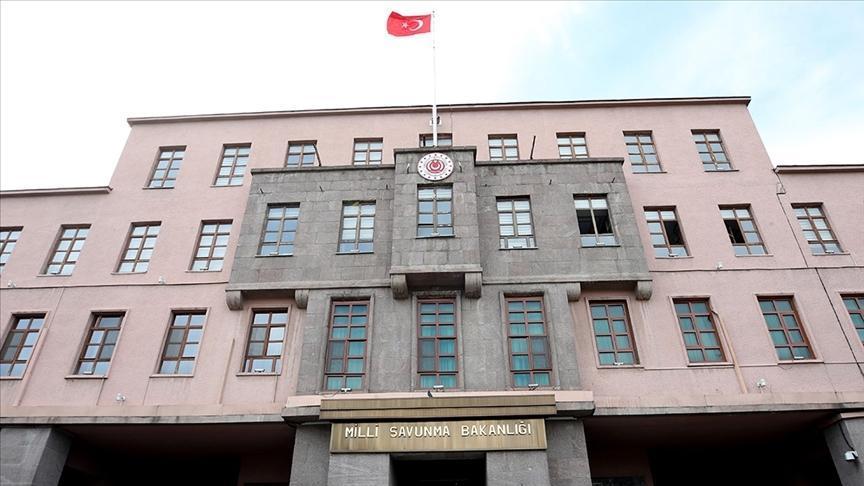Gone with the fire
Our forests are on fire. One feels agony seeing all the green go black. It is impossible to remain indifferent to the pain of forest villagers. All their sources of sustenance are gone with the fire. Forests are not only about green nature with diverse flora and fauna, they also possess a deeply engraved role in our culture, especially in areas that are swept away by the wildfire.
Famous French historian Fernand Braudel defines the Mediterranean world as the tension between the mountains and the sea. He places the sea as central to the Mediterranean identity and that it is the contrast of the sea and the land that surrounds it, the plains, mountains and forests, which defines the Mediterranean. For him, the sea is the core of the Mediterranean cultures, and it cannot be understood independently from the geography and environment surrounding it. Braudel has great empathy for the suffering of ordinary people. He tries to eye history from their perspective, not with victorious historical events or the accounts of the wealthy and the nobility, but with a focus on daily life, their laborious lives. His compassion for the peoples of the Mediterranean lead to a thoroughly new approach in history, a “watershed” shift in interpreting the past, changing our understanding of the Mediterranean civilizations forever.
Turkey’s Taurus Mountain range that divides what we call the Mediterranean region (Akdeniz bölgesi) with the Central Plain of Anatolia is a good illustration of Braudel’s approach. Here, people have been dwelling in mid-forest settlements in high mountains. Despite the existence of fertile agrarian lands that lie along between the sea and the mountain range, forests provided protected shelter, but also an alternative source of sustenance with numerous blessings of nature. On the southwest shores of Turkey, there is not even that belt of rich soil between the sea and the mountains -- forest-covered hills dive directly into the sea, while pine forests line the beaches in the most fantastic picturesque way. Sustenance comes not only from fishing but more so from the forests that offer plentiful income choices. Sometimes it is about grazing goats and buzzing bees, and sometimes it is about foraged herbs, elusive spices and mushrooms that have an economic value in lands afar.
Livelihoods that come from forest blessings are innumerable. The Mediterranean area mountains have their particular range of forest products. From honey to wild matsutake mushrooms, from carobs to salep wild orchids, the richness of forests is more diverse than we think. When we talk about honey, it is no ordinary honey, but rare varieties that are not easy to come by in other lands. Here, wild honey can still be collected in the woods, hidden in the tree hives and the stone crevices. Wild thyme honey of the region is precious. But there is another particular melittology heritage that the Taurus Mountains host, a honey culture that dates back to Lycian times, dating back to the first millennium B.C. There are almost monumental beehive structures built like the Lycian tombs, which are unique from an architectural point of view. Popularly known as the “bee mansion,” the beehive structures constitute a unique element of cultural continuity in the mountain highlands.
On the other hand, the forests in the environs of Marmaris and the province of Muğla are home to one of the most particular honey varieties in the world, pine honey. Pine honey is not obtained from flower nectar like other kinds of honey but from the secretion of a pine beetle named Marchalina hellenica, which lives on the sap of red pine varieties, especially that of Turkish pine (Pinus brutia), or commonly known as the Red Pine, Kızılçam in Turkish. The insect sucks the sap of the pine, digests the proteins and excretes the sugary excess, and the bee takes this sweet honeydew and makes pine honey. The formation of honeydew depends on various factors, firstly the existence of a red pine forest, a healthy colony of local bees and the existence of pine beetle. Then comes the ideal climatic conditions, which require an early morning mist, a tranquil season without north Boreas winds. Such conditions normally occur between mid-August and November, when bees start to collect honeydew nectar from pines. Fortunately, most beekeepers were keeping their hives in highland plateaus, and just getting prepared to transfer their colonies back to the forests for the honey collecting season. At least a portion of the bee colonies are saved from the fires, but now they do not have a homeland to return to. The unfortunate ones are gone with the fire.
Pine honey of Muğla province received Geographical Appellation in 2007, and Marmaris pine honey received its own appellation in 2017. Considering that 80 percent of Turkey’s pine honey is produced in Muğla and Marmaris alone, and that Turkey produces 95 percent of world pine honey - the remaining 5 percent is produced on the Aegean shores across in Greece, which is also under threat of fire - we can easily say that pine honey is now under threat of extinction. It will surely be no longer available easily in the forthcoming years. It is devastating for people that get their sole income from beekeeping, and also from other precious forest products that adorn rich tables.
Braudel is right. When fires blast on the shores of the Mediterranean, it is the ordinary people that suffer most, it is our shared culture that is under threat. It is not only a patch of greenery that is lost, it is the livelihood of people that has burnt into ashes and gone with the fire.












